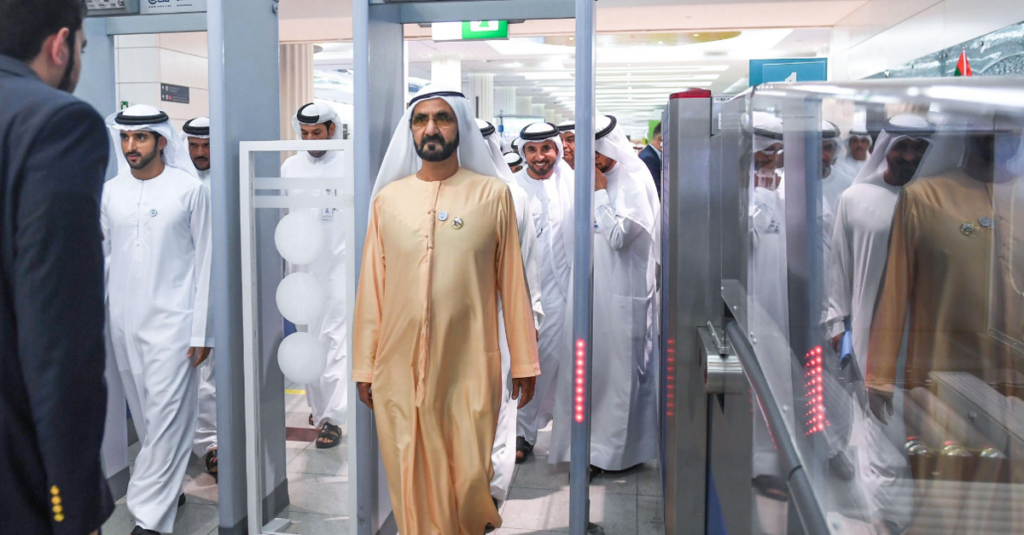
The evolution of Dubai into an aviation hub stands as a testament to Sheikh Mohammed’s belief in the power of competition. This principle has played a pivotal role in propelling the country to unprecedented prosperity.
Dubai Airport, inaugurated in 1959, started with a modest 1,800-meter runway and limited aircraft capacity. Embracing the “open skies” policy, it gradually evolved into a pivotal link between East and West.
READ: Enhancing Lifestyles in Dubai: The Role of Professional Concierge Services

Emirates Airlines played a pivotal role in Dubai’s success story. Born in 1985 as a response to attempts to stifle competition from Gulf Air, it not only thwarted protectionism but also fueled Dubai’s growth.
Facing threats to reduce traffic, Sheikh Mohammed rejected ending the open skies policy. Instead, he founded Emirates, defying advice to abandon openness. This marked the beginning of a new chapter, and the company thrived against the odds.
By 2017, Emirates operated 255 aircraft with over 61,000 employees. Boasting the world’s largest fleet of Boeing 777s, ambitious plans included ordering 262 new aircraft for $120 billion.
In 2016 alone, the airline operated 20,561 flights to 155 destinations in 83 countries, carrying over 55 million passengers.
In July 2018, the UAE Ambassador to Pakistan honored the Emirates’ first pilot, Fazal Ghani Mian. Leading the airline’s inaugural flight to Karachi in 1985, Captain Mian played a pivotal role in the early success of Emirates.
Emirates became the most valuable airline brand in 2016, valued at $7.7 billion according to the Brand Finance Global 500 report. Opinions attributing its success to the Dubai government and admiration for its strategic business model vary.
Collaborations with Qantas in 2012 and a partnership with a Brussels-based airline in 2018 exemplify Emirates’ successful management. Operating in Dubai’s competitive market with 24-hour airport operations and corporate tax benefits gives it a competitive edge.
To ensure sustained growth, the Dubai National Air Transport Association (DNAVT) was established in 1959. Providing diverse services, from catering and ground handling to cargo transportation, DNAVT co-founded the Aviation Catering Association, contributing to Dubai’s reputation as an aviation industry innovation hub.

In 1996, the Dubai government’s decision to establish a free zone at the airport streamlined air cargo trade, supporting over 220 destinations on six continents. Recognized as the best airport-free zone in the world by fDi magazine in 2012, this move underscored Dubai’s status as a global trade and logistics hub.
Established in 2008 by Sheikh Mohammed, Flydubai serves short-haul flights and has become a success, operating 1,700 flights per week to 90 destinations. This further solidifies Dubai’s position as a regional trade hub.
Unsatisfied with current achievements, Dubai is constructing the Al Maktoum International Airport and Dubai South. The aim is to serve over 150 million passengers annually, with Expo 2020 further enhancing Dubai’s standing in the world of logistics and trade.